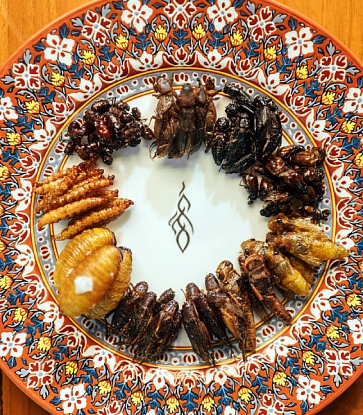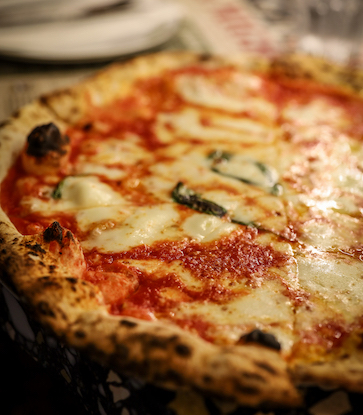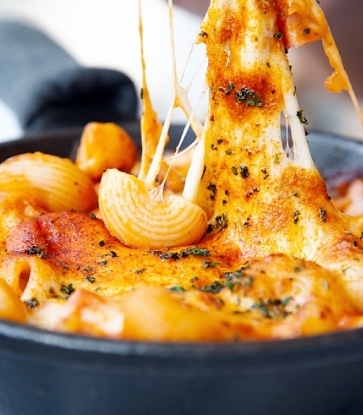“There’s cream in my carbonara!” (C'è della panna nella mia carbonara!)
An Italian companion shrieked at a Thai-fusion restaurant in Bangkok. Pasta carbonara, now available from fine dining restaurants to 7-Eleven shelves, has become a worldwide favourite. Warm, al dente pasta is covered in a creamy egg yolk sauce and topped with crunchy fried guanciale (cured pork cheeks), savoury grated Pecorino Romano cheese, and freshly grounded black pepper, creating a fragrant, tasty sensation.
But how much do you know about carbonara? Let’s dive into this Italian delicacy and find out if cream really does make Italians despair…

Italian or American?
Like many other classic dishes, carbonara’s exact origins are unclear. But some historians agree that this dish came to be in central Italy, possibly in Rome or in the wider Lazio region.Some point to the pasta dish cacio e uova from the nearby city of Naples, as its recipe was recorded in a cookbook by Ippolito Cavalcanti in 1893, listing its ingredients as eggs, cheese, and lard.
Others point to the dish name’s origins, as it is similar to carbonari, or coal miners. So, it may be that this hearty dish was meant to refuel these hard-working miners in their long days of toiling.
Also, there are no mentions of “pasta carbonara” in written records before World War 2. Then, in 1950, an article in La Stampa used the term to describe a dish American soldiers created by adapting traditional recipes with eggs and bacon during the Allied liberation of Rome in 1944. Then, British food writer Elizabeth David included the recipe in her famous Italian Food cookbook in 1954.
Today, this tasty dish can appear in many variations, depending on regional influences and the culinary mind in the kitchen. For example, the 2022 MICHELIN Green Star recipient Norbert Niederkofler of three MICHELIN-Starred St. Hubertus expresses his “Cook the Mountain” philosophy with his Tyrolean Carbonara featuring Italian Alpine ingredients of leeks, Malga cheese, dehydrated speck powder, and spelt flour fusilli, topped with a whole egg yolk. And there is Mauro Uliassi of three MICHELIN Starred Uliassi who replaces the cured pork with catches like smoked trout, clams, roe, and even canned tuna!
But what makes a perfect carbonara? Will using bacon and cream be such a crime?
We asked two Italian chefs who sing the praises of their homeland to weigh in. From recommended restaurants featured in MICHELIN Guide Thailand 2023, we have Amerigo Sesti of Antito and Francesco Deiana of La Dotta.

What makes a good carbonara?
“One that balances well between the saltiness of the guanciale and the Pecorino Romano cheese, the richness of the egg yolk, and the texture of the pasta, preferably bucatini or rigatoni,” stated Deiana. This is the dish that fulfils his carb cravings, and, importantly, it must be able to satisfy his full-blooded Italian mother if she tries it.“It must be rich, thick, and velvety,” explained Sesti. “It should blend powerful aromas wonderfully by simply using the saltiness as a clean enhancer of flavours.”
For Deiana, this famous dish is more an anthem than just a plate of food. “I think it is incredible how only three ingredients, egg yolk, guanciale, and Pecorino Romano cheese, are able to explain the essence of a region — Lazio to be exact. Carbonara puts on a plate the genuine nature of Italian cuisine, which is ingredients-led, comfortable, and intense,” shares the chef of La Dotta.

“One secret to great carbonara is to melt the Pecorino Romano cheese without coagulating the yolks. A good tip for beginners is to use a kitchen thermometer to monitor the temperature of the cheese and yolk mixture. Better yet, work in a bain-marie [heated water bath]. Once you get this, 80% of your job is done,” suggested Deiana.
Deiana added, “The main secret, as usual, is the highest quality ingredients. Since there are so few ingredients, there is no space for cheating.” Sesti then addressed the question on everyone’s mind. “Cream, in the context of carbonara, has the very unwanted effect of diluting the sauce, sweetening it, and making it bland and dull.” Sesti continued, “I think the cream happened somewhere in Northern Italy or foreign lands. They tried to get the creaminess from the traditional recipe, but they made the common mistake of overcooking the eggs and finding themselves with scrambled eggs over pasta!”
Sesti concluded, “The simple explanation is, a pale milky flavour isn’t what anyone should look for in a carbonara.”

So what goes well with carbonara?
Whether practising in the kitchen or ordering at a restaurant, Sesti said that the dish is delicious on its own and does not need anything else. Deiana suggested that the choice would be easy. A glass of Barbera or Montepulciano would be very nice, or better yet, more carbonara…Here are five MICHELIN-recommended restaurants in the MICHELIN Guide Thailand 2023 where you can enjoy this scrumptious dish:
- La Dotta- Antito
- Nonna Nella By Lenzi
- Enoteca
- Gianni


















